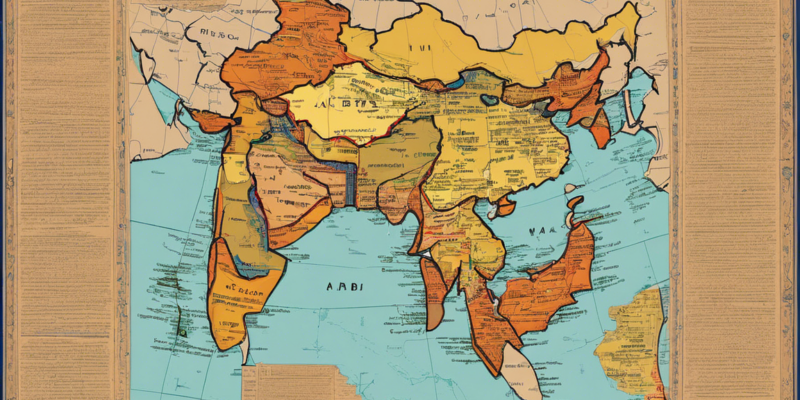Introduction:
Afghanistan and India are two diverse countries located in South Asia with unique cultures, histories, and landscapes. Despite being neighbors, they differ significantly in various aspects, including geography, culture, religions, politics, and economics. In this article, we will delve into the top differences between Afghanistan and India.
Geography:
-
Terrain: Afghanistan is known for its rugged and mountainous terrain, with the Hindu Kush mountain range dominating the landscape. In contrast, India has diverse geographical features, including the Himalayas in the north, fertile plains in the central regions, and coastal areas along the Arabian Sea and the Bay of Bengal.
-
Climate: Afghanistan experiences extreme variations in temperature, with hot summers and cold winters. India, on the other hand, has a more tropical climate, with monsoon rains in some regions and dry deserts in others.
Culture and Society:
-
Religion: Afghanistan is predominantly a Muslim country, with Sunni Islam being the dominant religion. In contrast, India is a multi-religious country, with major faiths such as Hinduism, Islam, Christianity, Sikhism, Buddhism, and Jainism coexisting.
-
Cuisine: Afghan cuisine is heavily influenced by its Central Asian and Persian neighbors, featuring dishes like kebabs, pilaf, and naan bread. Indian cuisine is known for its diverse flavors and spices, with popular dishes like curry, biryani, and dosas.
Politics and Governance:
-
Government: Afghanistan operates as an Islamic Republic, with a President serving as the head of state. India, on the other hand, is a federal parliamentary democratic republic, with a President as the ceremonial head of state and a Prime Minister as the head of government.
-
Political Stability: Afghanistan has faced decades of conflict and instability due to wars, invasions, and internal strife. In contrast, India, despite its regional challenges, has a relatively stable democratic system that has endured since gaining independence in 1947.
Economics and Development:
-
GDP and Industries: Afghanistan has a lower GDP compared to India, with a significant portion of its economy reliant on agriculture and foreign aid. India, as one of the world’s fastest-growing major economies, has a diverse industrial base, including IT, manufacturing, and agriculture.
-
Infrastructure: India has made significant investments in infrastructure development, including transportation networks, telecommunications, and urban amenities. Afghanistan, due to years of conflict, lags behind in infrastructure development and faces challenges in rebuilding its war-torn regions.
Frequently Asked Questions (FAQs):
-
Q: Is India wealthier than Afghanistan?
A: Yes, India has a higher GDP and a more developed economy compared to Afghanistan. -
Q: What are the main religions in Afghanistan and India?
A: Afghanistan is predominantly Muslim, while India has a diverse religious landscape including Hinduism, Islam, Christianity, Sikhism, Buddhism, and Jainism. -
Q: Which country has a more stable political system?
A: India has a relatively stable democratic system, while Afghanistan has faced decades of conflict and instability. -
Q: What are the significant geographical differences between Afghanistan and India?
A: Afghanistan is mountainous with rugged terrain, while India has diverse features including the Himalayas, plains, and coastal areas. -
Q: How does cuisine differ between Afghanistan and India?
A: Afghan cuisine is influenced by Central Asian and Persian flavors, while Indian cuisine is known for its diverse spices and regional specialties.
In conclusion, Afghanistan and India showcase the rich diversity of South Asia through their unique characteristics in geography, culture, politics, economics, and development. Despite their proximity, these two countries offer distinct experiences and perspectives that contribute to the vibrant tapestry of the region.

Comments